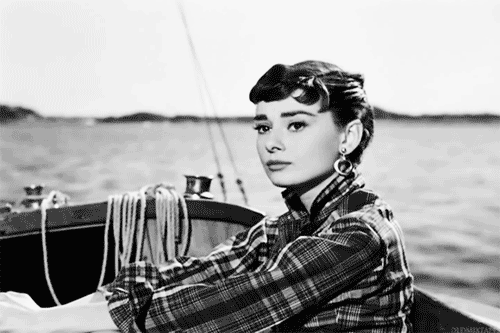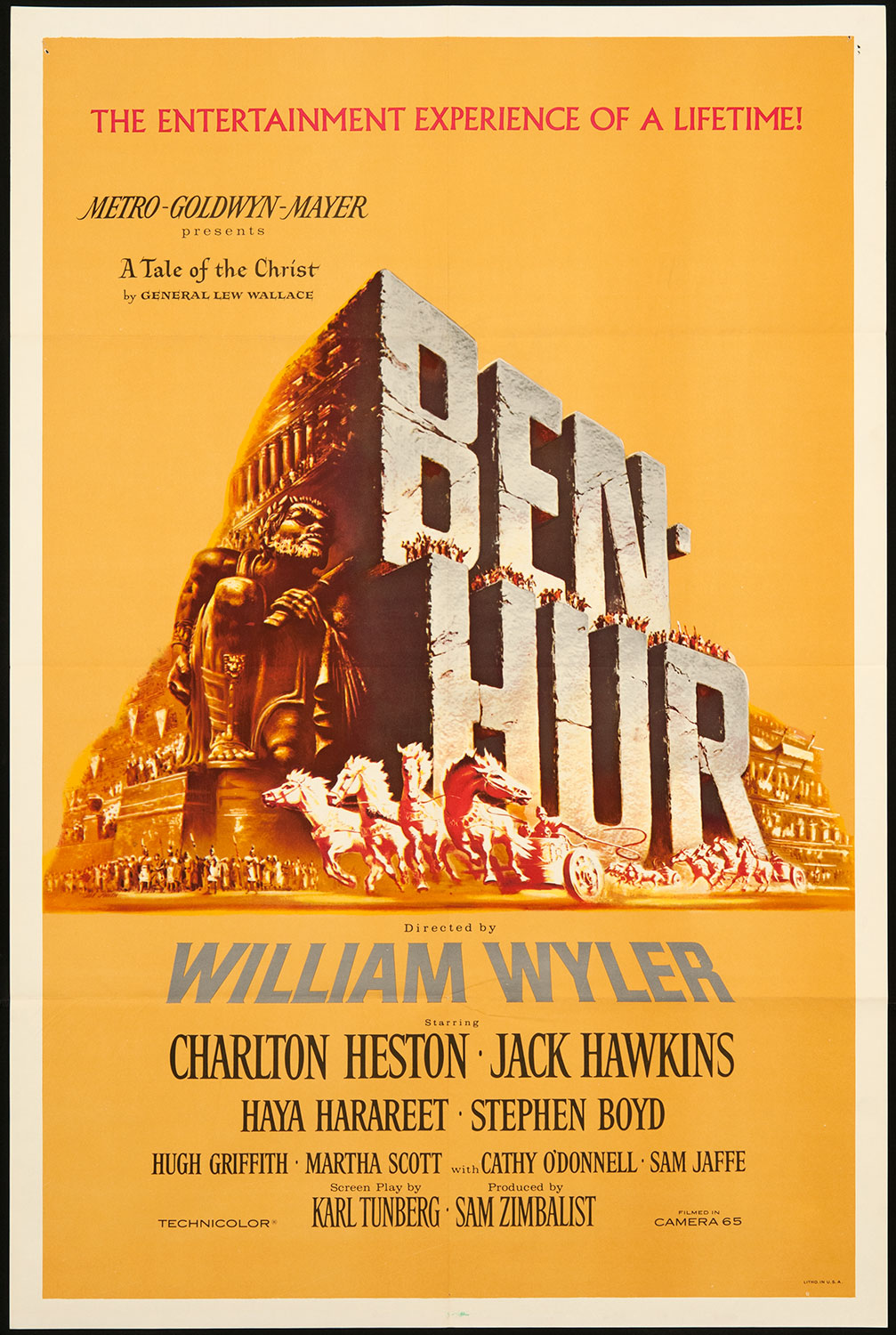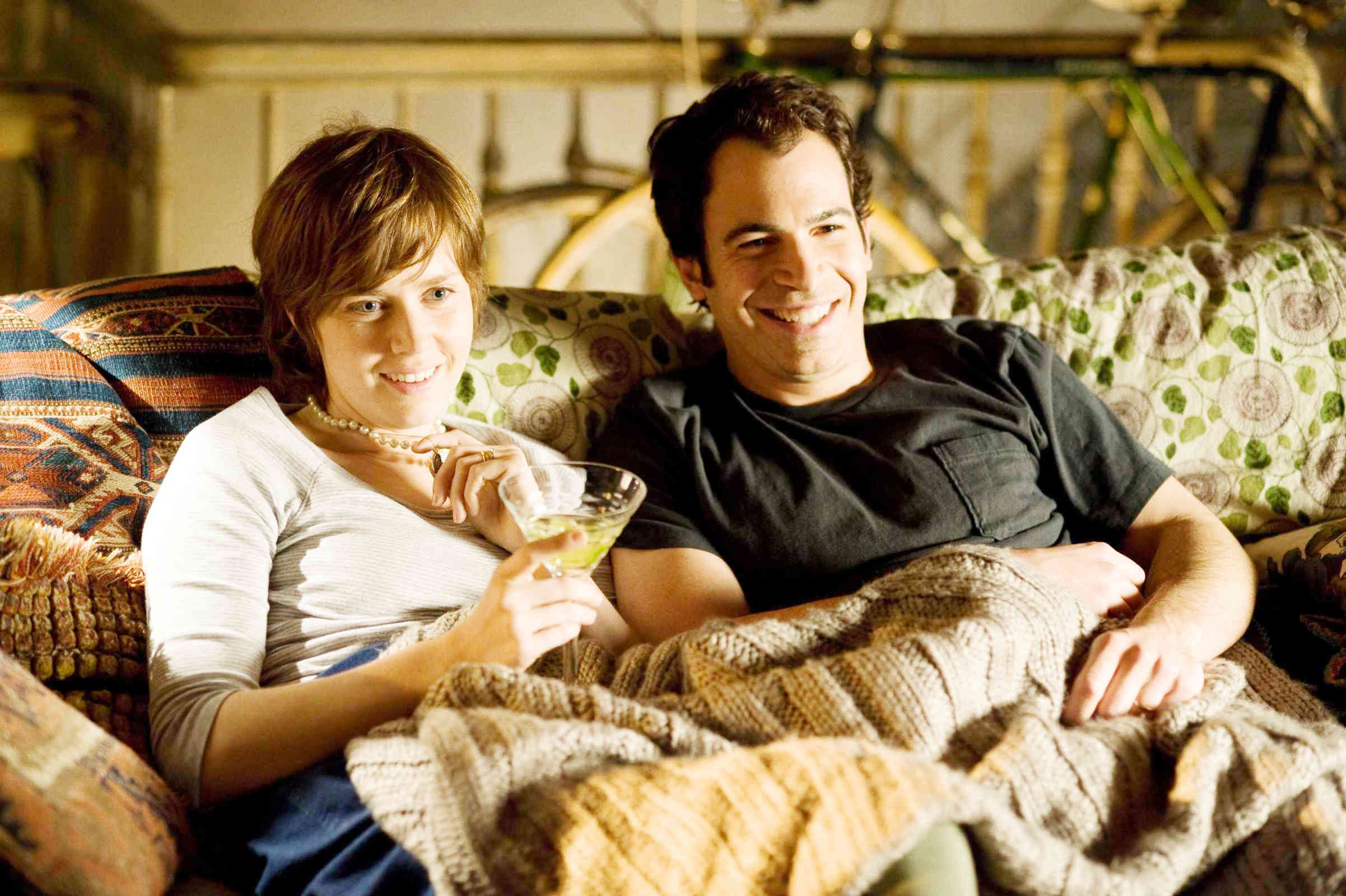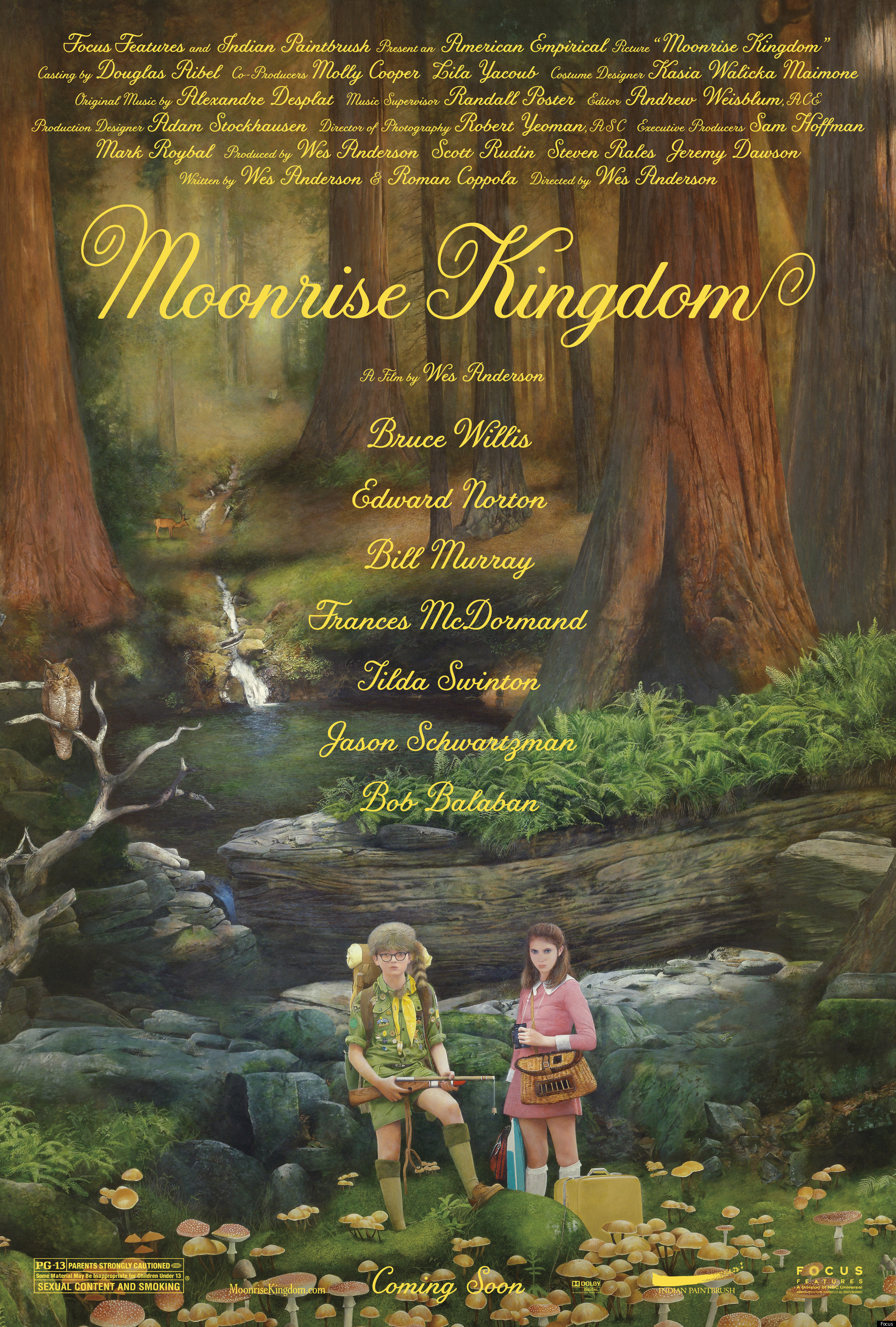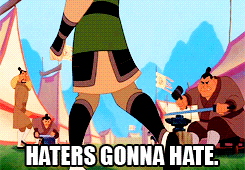[Note: Sooooo many spoilers.]
The thing about life is that is doesn't always go as planned. Not a huge revelation for most of you reading (I hope), but this week's ruminations on film is a written testament to this. I had all these plans to write about my feelings about the 1956 remake of
Ben Hur. It should be noted my many, deep, and conflicted feelings toward this film are part of why I began this blog. I was set with screen shots, gifs, and snarky remarks. Then
Black Snake Moan (2006) happened.
Yes, this movie
happened to me.
I say "happened" because it fit into a strange pair of experiences that
happened to me in the same evening. I also say this because the story and performances are more than a little traumatizing in the way only truly spectacular film can be. While I'm not sure I agree the all of the message this film seems to be putting forth or all the artistic choices made by the director Craig Brewer, it worked for me as a piece of cinema that was both entertaining spectacle and thought provoking art. I'm still trying to unpack and process the MANY things that
happened in this movie. One of the reasons it's particularly difficult is because of the ways in which the entertaining spectacle aspects of it smash against the thought provoking art portions of it. Never in my life have I seen another film in which the tone of the story was in such stark contrast to the images it presents. For example, take a look at two posters that were used to promote the film:
One poster looks like something you might come across while watching PBS. The other looks like something you might find in the
special section of the video store (if video stores still existed). Not only they imagery, but note the different tag lines: "What ties you down will set you free," vs. "Everything is hotter down south." Without a doubt, the marketing of this movie is a dman shame and probably part of the reason it didn't even come across my radar when it was first in theaters.
[Note: Remember those spoilers I was talking about...?]
Now what is this film even about? With the two sets of imagery duking it out above, it's hard to tell. Basically, this movie plays out like a guide to the Stockholm Syndrome approach to healing. A righteous, religious, black man, Lazerous (Samuel L "Motherfuckin" Jackson), finds a messed up, nymphomaniac, white chick, Rae (Christina Ricci) on the side of the road. He takes her home, cleans her up, then chains her up when she tries to get away, because damn it, her healin' aint done! She's got a poison inside her, like his wife who left him for his brother, and it needs to be sucked out! Exercised like a demon! Over the course of nursing her back to physical and mental health, Lazerous returns to his God-given gift of blues guitar and manages to nurture a budding relationship with the town's pharmasist. At a certain point, Rae doesn't even need to be chained up; she stays and lets herself receive the care he gives. Wouldn't ya know it? They end up healing each other.
 |
| Save my soul with your devil music! The irony will be heartwarming! |
Things are not nearly as cut and dry as all that. As I said earlier, there's still a lot I'm still working through in my head about this film. One is this contradiction in images and messages. Another is its handling of race and religion. The casting and performances also gave me a lot to think about. At this point I should probably talk about the thing that
happened to me right before I went to watch this movie at a friend's apartment. Religion happened.
I had planned to pick up my laundry by 8:50pm since I thought the laundromat closed at 9. In the short walk between my apartment and the laundromat is a house of nuns. No, not a Convent. That's down the street from the Nun House. Elderly Sister Sheila came upon me on the street as I approached the corner. As usual, she was bright-eyed and had something very important to tell me. Also as usual, she had virtually no recollection of who I was. We have met a couple times, but Sister Sheila is a little bit colorful in the way that only those sort of perpetually happy elderly folk with selective memories can be. Perhaps she vaguely recalled my face, but she doesn't know my name nor when we met. I'd like to imagine she knows I'm a member of the parish congregation, but I think I'm aiming too high.
"Have you seen the chapel we have inside?" she asked excitedly. I had, in fact, been inside the Casa de Nun. I explained that I had seen the chapel but aparently I was wrong. I had only been in what
used to be the chapel in the 1950s. There was a new one I needed to see
NOW.
 |
| Surprise! You're about to get kidnapped! |
Sister Sheila took me by the elbow and began to pull me up the stoop to the porch of the red brick Victorian house on the corner. I still had my laundry in mind; I wasn't quite sure when the laundromat closed for the night and was worried if she started telling her tales from forty years ago (as she's known to do) I would have to leave my clothes in the the dryer over night. Also, all the clean underwear I possessed was currently in said dryer. Things could have quickly become dire. I supposed I could have politely told her I couldn't stay and briskly
walked away, but I believe sometimes the universe puts detours in your
way for a reason. The Quest Structure in general assumes detours and
distractions are part of achieving an overarching goal. Many spiritual
leaders, from ancient Vikings to Niel Geiman, assert that what you do in
unexpected situations have karmic outcomes that can be rewarding or
damning. With this in mind, I let myself be abducted.
Once inside, we went farther back into the house, past the space I thought was the chapel. As it turned out, the current chapel is actually located at the rear of the house in a newer addition that looks hyper modern, and a little out of place in comparison to the rest of the house. Sister Sheila began giving me a personal tour of the chapel's highlights. I was invited to touch an elaborate wood carving of the Stations of the Cross that had been made and gifted by "someone who lived right on this very block!" We also took some time to admire a beautiful Coptic papyrus painting from Egypt.
After this quick and intimate tour of the private chapel inside Nun Haven, Sister Sheila walked me back to the sidewalk where she had briefly kidnapped me. Just before we said good-bye, she said to me, almost as an afterthought, "The light on the porch is always on. We need people to feel safe." As I went on my way, I tried very hard to make sense of what had just happened.
To my supreme fortune, the laundromat closes at 9:30pm and not 9pm as I originally thought. As I gathered up my clothes I received a text from a friend. "Black snake moan nowish at our place if you want to join!" I did want to join!
Black Snake Moan was one of the movies I had been meaning to watch for almost a year. I first learned about it when I googled "under-rated movies." It appeared in a list
here and has since been on my personal list of films to see.
Not going to lie, I think my somewhat personal and incidental religious experience that evening impacted the eye with which I interpreted the religious themes of the movie. I thought it was heavy-handed and righteous. That could just be a cultural issue- as a filthy papist from the north east, I have trouble taking certain strands of Protestantism seriously, particularly evangelical strands. As someone who works in the non-profit world, I also find it upsetting when religion is the sole way a problem is resolved in works of fiction.
I'm not sure if watching this with a group of people was better or worse for fully appreciating it, but I'm all about ongoing commentary, and that gets a little weird when you're by yourself. At one point in watching, one of my friends asked if it was directed by Quinten Tarrentino. It wasn't, but for a moment I'd wondered the same thing. We both thought this because so many of the shots had a super pulp style to them. Some of the shots looked like the were ripped from
Planet Terror or
Grindhouse. The retro bluesy soundtrack, both electric and acoustic, also echo Tarrentino's current thematic fixations, as well as his sometime collaborator, Roberto Rodriguez' style. It's easy for your mind to make these connections when there are shots like this:
And this:
The thing about this movie that's in stark contrast to a Tarrentino or Rodriguez wet dream is that it's
not a wet dream. While a woman's body and female sexuality are prominently featured on camera, it isn't the point of these shots. These actions and behaviors indicate something greater about the character and the story, rather than being the object story and characters are mapped upon.
As for performances, I have a lot of feelings about the lead roles. My strongest feeling is that Christina Ricci needs to be in more stuff. Rather, she needs to be in more stuff that lets her show the breadth of her talent. Who knew she could do damaged and sultry? In the same role no less! It's more than a little upsetting how her character was advertized, but I'll save my diatribe on that for another post.
The other major take-away from this film is that if there's anyone I want to have around when I'm having a psychotic break down, it's Samuel L "motherfuckin" Jackson. Now, whenever I feel I just can't deal with whatever's happening in life, I just imagine him holding my face and telling me "You're going to get your shit together. And I will. And I do. And this line from the movie has become a catch phrase among my group of friends. He's been quoted a couple times saying he believes the role of Lazerous in
Black Snake Moan is his best performance, and I can't disagree. You know the way Julius says he plans to retire at the end of
Pulp Fiction (1994)? Imagine checking in on his character 30 years later. That's Lazerous. With a character that intense, it's easy to create a caricature, but he plays the role with sincerity and and truth.
 |
| Get off my lawn... and repent! |
Then there's Justin Timberlake. I just... The thing about Justin Timberlake is that I want to like him in this role. He's not bad, perse, he just not beleivable. Southern boy trying to make it big
should be easy for him. I mean, he's from Tallahassee, right? I think he's just too much of a pop star for me to take him seriously in this role. It may not have been the best choice for a film debut. I mean, Mark Walberg didn't start in film with roles like Micky Ward in
Fighter (2010). Heck, in his first film appearance, he played himself. Private Tommy Lee Haywood in
Renneaisance Man (1994) was the first time he played a role that wasn't Marky Mark. It was a more believable leap from Calvin Klein underwear model to endearing army recruit in a comedy. Half way through the movie I re-cast JT's role with Jake Gyllenhaal in my head. That's really all I can say on the matter.
 |
| I'll cry YOU a river! |
Further concerns I had, in addtion to the issues of marketing, I think the dealings with race in this movie are more than a little problematic. Rather, for a film whose storyline presents unrealistic miracle redemption, racism the one morally shamefull quality that is never healed or redemed. In the story's climax, I found myself wondering "Are we just going to fly past the fact that Justin Timberlake just called Samuel L. Jackson a Nigger (with a capital fucking N and a hard "R")...? Okay. I guess we are." Five minutes later, Lazerous is the best man in JT's wedding. Maybe this was all part of the sort of mainstream racism present in the world of the story, like how Rae wears a union jack on her t-shirt through 2/3 of the film. Or like Lazerous' reason for not going to the police when he found her on the side of the road (fear of being charged with her assault "just for being black in the area"). Maybe we're supposed to assume or hope there's a missing scene where the characters work shit out. Still, for a film attempts to address issues graphically and head-on, race was confusingly side-swept.
One thing I'm definitely going to need to side-sweep myself, just for the sake of time, is sound in this movie. It is out of hand AMAZING. Not just the soundtrack. SOUND itself is spectacular. I'm honestly shocked this film wasn't nominated anywhere for sound. What I was hearling throughout the movie just as intentional as what I was seeing and deeply impacted my understanding of the world and mental state of the characters. Much like my thoughts on sexism, I'll be saving my feelings on sound in
Black Snake Moan for another post. There's just too much to say.
To review, I wasn't planning to write about
Black Snake Moan this week. I wasn't even planning to watch this movie. But sometimes, like a nun on a mission, life and happenstance take you places you never thought you'd go. It's possible that redemption is what lies beyond detours one willfully follows, or maybe just a great evening of mind-blowing cinema with friends. Either way, I highly recommend indulging distractions- they may help you on your quest or at least give you puzzles to unpack as you continue questing.




